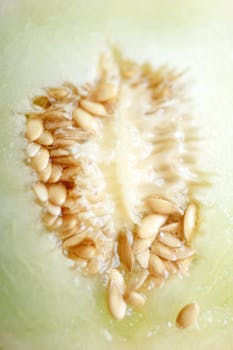Your pet mouse just had babies—congratulations! But if you're feeling a bit overwhelmed, you're not alone. Caring for a new litter of baby mice can be both exciting and nerve-wracking, especially if you're unsure of what to do next. Don't worry—we're here to guide you through the process step by step, so you can ensure both mom and babies are safe, healthy, and happy.
🩺 Vet Recommendations
When your mouse has babies, it’s important to provide the right environment and care to support the mother and her newborns. Here's what veterinarians recommend:
- Minimize Stress: Keep the enclosure in a quiet, low-traffic area to reduce noise and disturbances.
- Leave the Nest Alone: Avoid handling the babies during the first 10–14 days, as interference can stress the mother.
- Provide Extra Nutrition: Offer the mother a balanced, nutrient-rich diet to support milk production.
- Monitor for Health Issues: Keep an eye on the mom and babies for signs of illness or neglect.
By following these steps, you'll create a safe and supportive environment for your new mouse family.
📋 Care Tips
Newborn mice are incredibly fragile and require specific care. Here are some practical tips to ensure their well-being:
- Prepare a Proper Nest: The mother will usually build a nest using bedding materials. If she hasn’t, you can provide soft, unscented paper or tissue for her to use.
- Keep the Cage Warm: Baby mice cannot regulate their body temperature, so make sure the room is warm (around 75–80°F).
- Separate Males: If there are other adult male mice in the cage, they should be removed, as they can pose a risk to the babies.
- Fresh Food and Water: Ensure the mother has constant access to clean water and high-quality food, such as commercial mouse pellets, fresh vegetables, and protein sources like cooked egg or mealworms.
Remember, the mother is the primary caregiver, so your role is to provide her with everything she needs to care for her babies.
✅ Do’s and Don’ts
To help you navigate this exciting time, here’s a quick list of do’s and don’ts:
- Do: Check the cage daily to ensure it’s clean and safe.
- Do: Observe the mother’s behavior to ensure she’s nursing and caring for her babies.
- Do: Handle the babies gently and only after they’re at least 2 weeks old.
- Don’t: Touch the babies too soon, as this can cause the mother to reject them.
- Don’t: Use cedar or pine bedding, as the oils can harm the babies.
- Don’t: Overcrowd the cage; give the mother plenty of space to care for her litter.
Following these guidelines will help ensure a smooth and healthy start for your baby mice.
💡 Expert Advice
Raising baby mice can be a rewarding experience, but it’s also a big responsibility. If you notice any of the following issues, it’s time to take action:
- The mother stops nursing or abandons the babies.
- The babies appear cold, weak, or lethargic.
- Any signs of illness in the mother or babies, such as discharge, difficulty breathing, or lack of activity.
In these cases, reach out to a veterinarian or pet care expert immediately. They can provide guidance on how to care for abandoned or sick baby mice, which may include hand-feeding them with a specialized formula. According to VCA Animal Hospitals, orphaned baby mice require around-the-clock care to survive (source).
With the right care and attention, your baby mice can grow into healthy, happy adults. Just remember to stay patient and observant throughout this process.
FAQs
Q: How soon can I handle the baby mice?
A: It’s best to wait until the babies are at least 10–14 days old before handling them. At this point, they will have fur, and their eyes will likely be open, making them less fragile.
Q: What should I feed the mother mouse?
A: Provide a high-quality commercial mouse pellet diet supplemented with fresh vegetables, fruits, and protein sources like cooked egg or mealworms. Make sure she has constant access to fresh water.
Q: What if the mother mouse isn’t caring for her babies?
A: If the mother seems to be neglecting her litter, contact a veterinarian for advice. You may need to step in with hand-feeding and temperature regulation to keep the babies alive.
Book a $49 online vet consultation at https://www.dialavet.com for fast, expert advice.























